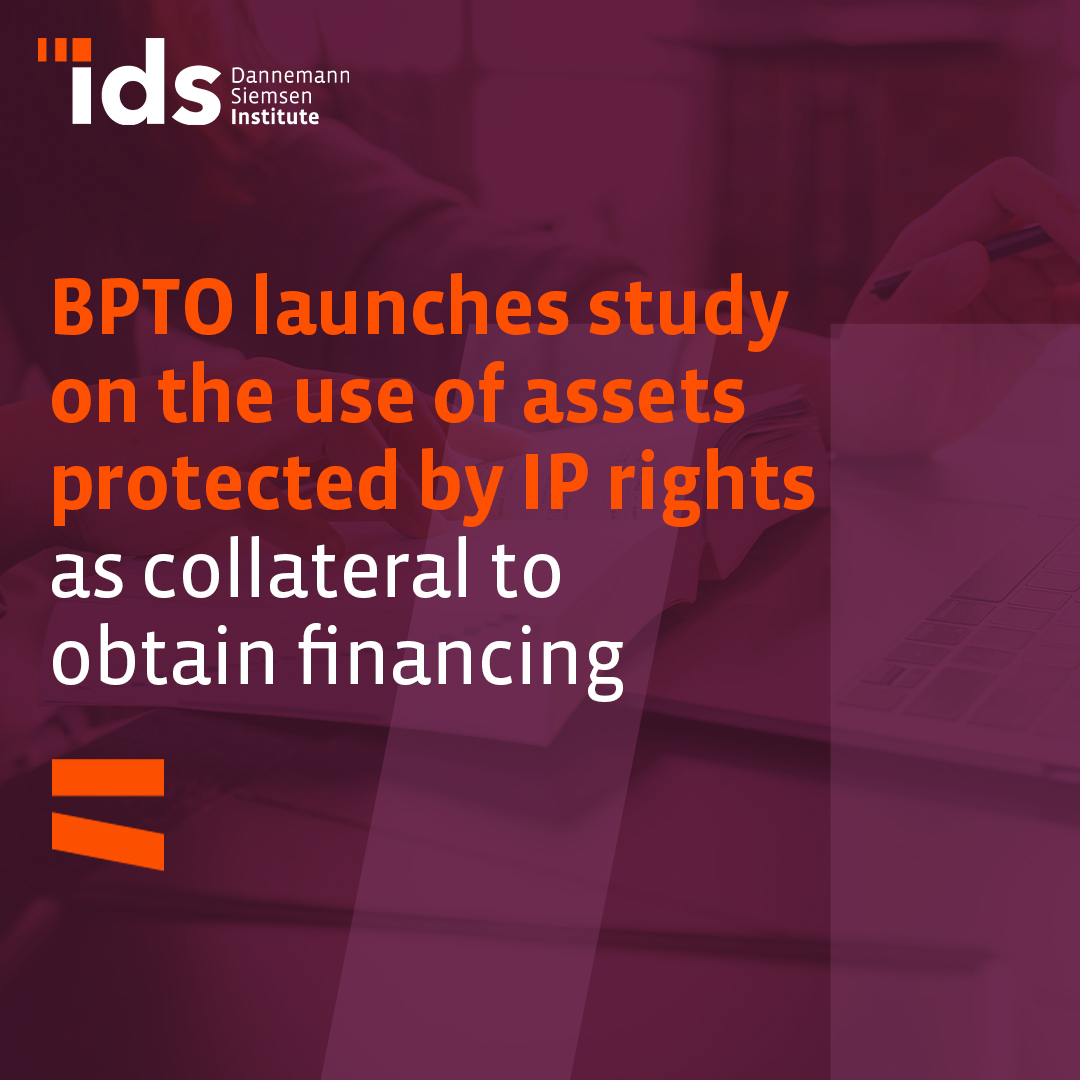18 de fevereiro de 2025
Share
BPTO launches study on the use of assets protected by IP rights as collateral to obtain financing
The Brazilian Patent and Trademark Office (“BPTO”) recently published the study “Unlocking IP Finance in Brazil: how the experience of relevant markets can help Brazil move forward”. The material seeks to expand the debate on the use of IP assets as collateral to obtain financing and fundraising for companies, especially startups. The analysis of Brazilian legislation and the experiences of countries in North America, Asia, Oceania and Europe resulted in proposals to expand the use of Intellectual Property Rights (IPRs) as collateral for financing in Brazil.
Brazilian legislation classifies industrial property and copyright as movable assets, suitable for pledging and attachment, according to the Civil Code. Despite this, the use of IP as collateral faces barriers, such as the complexity of valuation and the lack of a secondary market, which reduces its liquidity. Uncertainty in pricing and difficulty in selling mean that international guidelines, such as the Basel guidelines, limit the acceptance of IP assets as financial collateral.
After analyzing the legislation, the study highlighted the types of financing for innovative companies in Brazil. Loans and financing serve more established companies, while economic subsidies, in this case non-reimbursable grants provided by government agencies or third sector entities such as Financier of Studies and Projects (FINEP), benefit small and medium-sized enterprises (SMEs).
Equity investments are suitable for high-growth companies, including startups, where the values are high and the risk moderate. Institutions such as FINEP and National Bank for Economic and Social Development (BNDES) support innovation in Brazil, but do not consider IP as collateral, which represents an opportunity to modernize the financial sector.
When it comes to analyzing international practices, the United States leads in the number of patents accumulated, and the use of IP assets as collateral for financing is relatively common. Even so, the practice faces regulatory obstacles: because they are not readily marketable guarantees, the American banking system does not include intangible assets in its list of eligible guarantees. In Europe, with the exception of the UK, the practice is also challenging. The rigidity of the euro zone and the lack of secondary markets and standardized valuation practices contribute to banks’ reluctance to accept intangible assets as collateral.
China, on the other hand, has been leading IP finance initiatives for 30 years. Japan and South Korea, meanwhile, have robust regulations that boost the financing of innovative small and medium-sized enterprises (SMEs). In Singapore and Taiwan, public policies and private support encourage the use of intangible assets for credit. Indonesia and Malaysia are at an early stage, while in Australia, patents are widely used in the private sector to attract investment.
Finally, the study points out that the lack of an IP valuation standard, combined with the absence of a secondary market for trading, i.e. an asset trading environment where there is efficient pricing and liquidity, are factors that block the use of IP as collateral for borrowing. In addition, the credit market faces information asymmetries, where one party has more knowledge than the other. This makes it difficult to distinguish between good and bad payers, and in the case of intangible assets, the owner of the asset knows much more about its value and market potential than the bank, which prevents the latter from reliably measuring the risk of default and the recovery of value in the event of foreclosure on the collateral.
Among the concrete proposals to advance the development of IP finance in Brazil, the study recommends structural and legal adjustments to ensure transparency in financial transactions. One of the main recommendations is the implementation of IP rights annotation systems, similar to the one adopted by the United States Patent and Trademark Office (USPTO), where annotations have defined deadlines for limitations and encumbrances, ensuring greater legal certainty in financial transactions. In addition, companies, especially SMEs, are encouraged to record IP in their financial statements, valuing these assets as part of their patrimony and raising awareness of the strategic value of IP.
The formation of companies specializing in the valuation of intangible assets and the development of a national trading platform are essential. The study also proposes the creation of a fund coordinated by FINEP and BNDES for valuation, credit granting and risk mitigation, as well as offering government-subsidized credit insurance, reducing risks and encouraging the use of IP as collateral.
The study can be accessed via the link: IP Finance study
Note: For quick release, this English version is provided by automated translation without human review.
